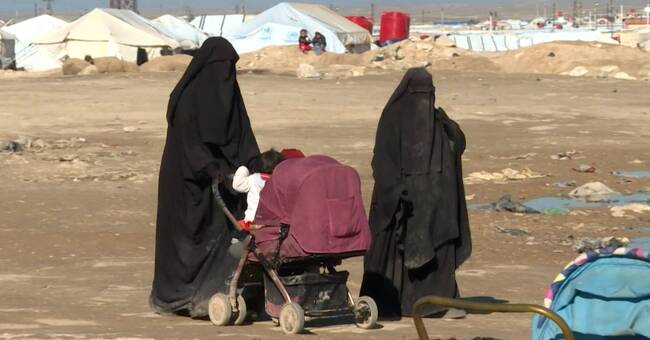11,000 so-called IS prisoners from some 60 countries are trapped in refugee camps in northeastern Syria.
The women and children live in the camps, the men in rebuilt prisons.
Some have been there for over four years.
There is no exact figure on how many of these are Swedish citizens, but the number has been estimated at around 10 men, 25 women and 60 children.
UD: No time frame
It is currently unclear when or if trials for the people in the camps can take place.
The Swedish Ministry of Foreign Affairs writes to SVT that they follow the issue but points out that there is no agreement with the Kurdish self-government (AANES) in the area of prosecution of Swedish citizens.
In October, SVT Nyheter was able to report that a breakthrough had taken place in the negotiations on the Swedish IS women in Syria, something the Ministry of Foreign Affairs now firmly denies.
According to the authority's press service, the issue should only have been touched on briefly during the talks.
“We experience that AANES intends to inform about its prosecution initiative shortly and we look forward to receiving more information.
The work has been postponed due to the pandemic, "the Ministry of Foreign Affairs writes in an email.
"People are murdered every day"
According to the Red Cross, the situation in the camps is unsustainable, not least in view of the pandemic.
Proper housing is lacking and the sanitary conditions are difficult.
- You only see children there.
It's shocking.
Education is barely on the map and it is a violent environment.
People are murdered there every day, says Fabrizio Carboni at the International Committee of the Red Cross, who regularly visits the camps.
According to him, the home countries of the prisoners must take their responsibility to bring these people to justice.
- These foreign women and children must be returned to their countries of origin.
This must be done in accordance with international rules on legal certainty, says Fabrizio Carboni.

